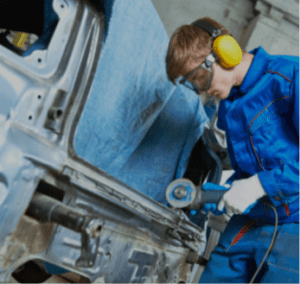What do you do when your car is making a funny noise, having engine trouble, or in need of body work? Take it to your local body shop or car mechanic, of course! The problem is that you may not know what’s wrong with your car, so you have no idea if the “issue” the mechanic tells you need fixing is actually the real problem. You can never be truly sure what’s wrong (unless you’re a car expert), so you essentially have to take the mechanic’s word.
Sadly, this can often lead to scams and fraud. Many dishonest mechanics and body shops take advantage of our lack of knowledge to over-charge, raise prices, and sometimes even damage another part of your car while fixing one. If you want to avoid bodyshop fraud, scams, and mis-repairs, here are a few tips:
- Understand labor costs – The labor cost for a mechanic can be anywhere from $40 to $90 per hour. You’ll often spend more on labor than on parts, so be prepared to factor that in when checking over the bill. When getting the estimate, make sure to ask how much the labor costs are. It will help you know exactly what’s included in your final bill. The final bill shouldn’t be more than 10-20% higher than the estimate, and go over the bill/estimate to see all the labor and parts charges.
- Avoid flat rates – Some body shops charge a flat rate for car repairs. These rates are based on the vehicle (year, make, and model) as well as the job to be done. You’re paying for the estimated time a mechanic will make to do the job on the vehicle. But most good mechanics can finish the job well before the estimated time. You may end up paying for an extra hour or two than was needed to finish the repairs.
- Analyze the body shop thoroughly – A dirty, messy body shop isn’t necessarily going to be one run by scam artists, but it could be an indication the management and technicians aren’t concerned about professionalism and presentation. You should try to find a body shop that is clean, organized, and run by professional management. The shop should also have proper certifications (with the AAA, ASE-certified technicians, etc.), and adhere to the Motorist Assurance Program Code of Ethics. Check the body shop’s rating on the Better Business Bureau, as well as their online reviews.
- Find someone to build a relationship with – Ask your friends and family for recommendations on honest mechanics and technicians. Take your car to that body shop every time, and build a relationship with the technicians and management. Price or advertisements shouldn’t dictate your choice of bodyshop—always work with someone you know you can trust, even if it’s on someone else’s recommendation.
Be smart when shopping for a body shop, and you may find yourself in a happy, satisfying relationship with your mechanic that will last for years to come!




